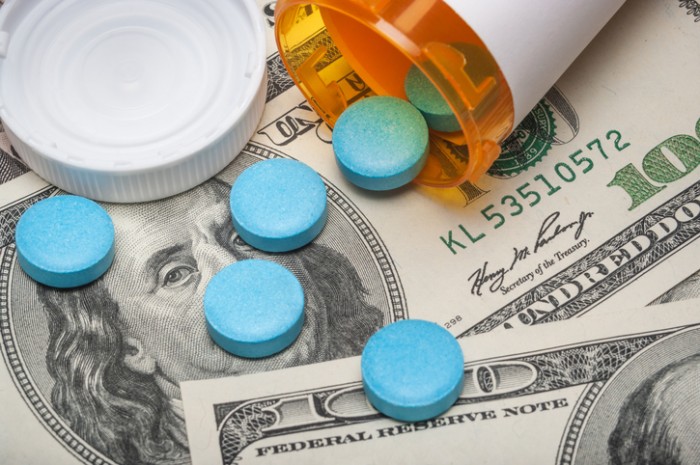Healthcare Payers Seek Passage of Bill to Lower Drug Costs
Healthcare payers support a House bill to bring down prescription costs by increasing competition among drug makers.

Source: Thinkstock
- The recently introduced the Fair Access for Safe and Timely (FAST) Generics Act seeks to reduce the timeline of bringing generic prescriptions to market and enjoys the support of healthcare payers.
The philosophy behind the bipartisan bill is simple — increase competition by allowing more generics to hit the market faster and help lower prescription drug prices.
Introduced last week, the FAST Generics Act (HR 2051) would “amend the Federal Food, Drug, and Cosmetic Act to ensure that eligible product developers have competitive access to approved drugs and licensed biological products, so as to enable eligible product developers to develop and test new products, and for other purposes.”
The prices attached to specialty drugs are predicted to encompass 44 percent of all drug spending by 2017. A 2013 AARP report cited the annual retail cost of the most commonly used specialty prescriptions to average over $53,000 a year. The vast majority of those costs being covered by commercial and government healthcare payers.
With backlogs at FDA and wait times of up to four years, time is money for healthcare payers and consumers continuing to feel the effects of escalating prices for prescription drugs. If the FAST Generics Act is made law, the Congressional Budget Office has projected that the savings could top $2 billion over the next 10 years. These savings would apply to not only consumers but also payers and businesses.
“The high cost of brand name drugs should never force patients to make painful financial decisions. Medicine must be affordable to those who need it most,” said Rep. David McKinley (R-WV). McKinley co-sponsored the bill along with Peter Welch (D-VT), Steve Stivers (R-OH), and Kurt Schrader (D-OR).
In a statement from the Congressmen’s office he stated that the legislation would “thwart manipulation of the Food and Drug Administration’s (FDA) drug safety regulations in order to block the production of generic alternatives to brand name medicines.” A practice McKinley ties to, “anticompetitive practices and increased pharmaceutical costs,” by the big pharma players.
Payer industry group AHIP has already thrown its support behind the proposed legislation. The organization specifically cited how the bill would close a loophole which currently allows brand manufacturers to block generics from coming to market.
“By prohibiting this unfair, anticompetitive behavior, the FAST Generics Act takes an important step toward lowering the costs of care and reducing premiums, without sacrificing consumers’ access to essential medications. We applaud these representatives for coming together on such an important action.”
A previous bill, HR 5657, also known as the FAST Generics Act was introduced in 2014. The bill was also sponsored by Welch and Stivers. Although that earlier bill initially garnered bipartisan support, it never made it through Congress, bogged down by legal questions and safety protocols from innovator companies to the generics.
According to Stivers, one major obstacle was “generic firms seeking to acquire the samples of the NDA product found themselves unable to acquire the products from the holder of the NDA due to the ETASU restrictions.”
Similar legislation has also been studied in the Senate culminating in a December 2016 report which painted a dire picture for the emergence of generic drugs on the market. The report detailed excessive application fees and costs associated with getting generics tested that left manufacturers reticent to move forward.
“Generic prescription drugs are very often a cost-effective alternative to brand name drugs. Patients, in consultation with their physician, should have a choice where possible,” said Welch. “Our legislation will save consumers billions of dollars by ensuring timely competition in the market and preventing unfair delays for patients seeking more affordable options for their medications.”
